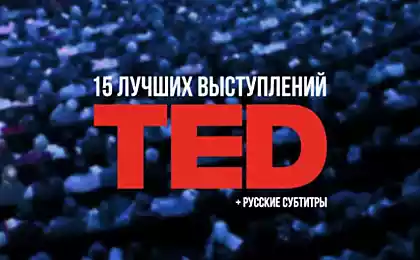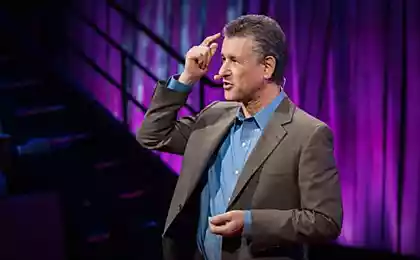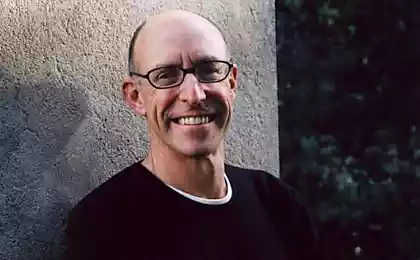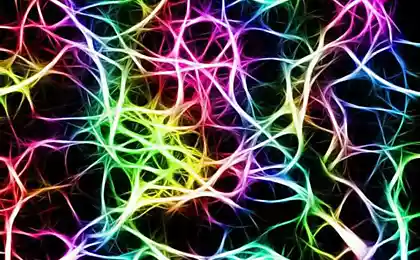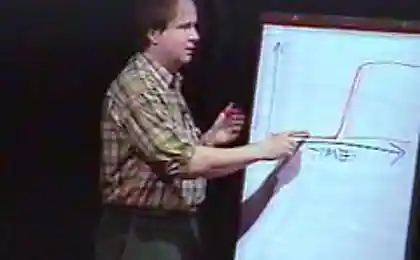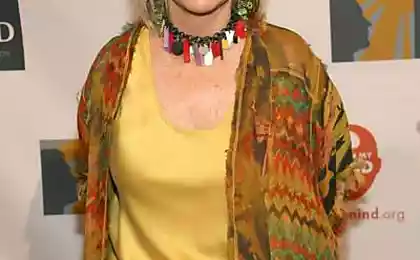596
The ideology of TED Chris Anderson: why be able to speak every needs
The TED movement has revived the culture of public speaking. In publishing house "Eksmo" goes the Russian version of the book, the ideologist and curator of the famous conference of Chris Anderson's "Words that change the world. The first official guide to public speaking".
Publish an excerpt from the Chapter in which Anderson explains why the importance of the skill to speak publicly will only grow.
The interconnectedness of knowledge
I want something to convince you that no matter how important the public speaking skills today, in the future they will become even more important. Communications are evolving with great speed, and together with them develops one of the most ancient abilities. I am convinced that tomorrow the ability to present your ideas to others will become even more important skill than it is today.
Seventy nine million three hundred thirty eight thousand four hundred ninety one
Perhaps even absolutely necessary:
Every child who wants to develop his confidence.
Every graduate dreams of a meaningful career.
— Anyone who wants to get promoted at work.
— Everyone who cares is some problem.
— Anyone who wants to get a reputation.
— Anyone who wants to communicate with other people who share his passion.
— Anyone who wants to stimulate action in the name of change.
— Anyone who wants to leave something behind. — Everyone — period.
How am I supposed to prove it? Let me tell you about his way that have done for the past twenty years. It totally changed my view about the importance of public speaking skills and about the future of this art.
Let's go back to Wednesday, February 18, 1998. That was the day I first visited at the TED conference in Monterrey, California. In those days I believed such conferences are a necessary evil. Had to spend hours listening to boring speeches and presentations to meet people from your field of activity. But my good friend Sonny Bates, a specialist in communication, have convinced me that TED is something else entirely, and I just have to go there.
By the end of the first day I was a little puzzled. I listened to several short speeches programmer, marine biologist, architect, entrepreneur and graphic designer. All this was told perfectly. But I didn't understand, what do these performances have to me. I was engaged in media. I published magazines. As these performances could help me with my work?
TED was founded in 1984. Then Richard "Ricky" Verma and his colleague Gary Marx theorized about the ever closer convergence between technology, entertainment and design (Technology, Entertainment, Design — TED). They were right. In that year appeared the first Apple Macintosh computer, and Sony showed the first CD. Both were closely associated with all these three industries.
We were thinking about what new opportunities will open to bring them together. Maybe technologists can make their products more attractive, having listened to the proposals focused on the audience of designers and creative people? May be architects, designers, and leaders of the entertainment industry will be able to expand their opportunities have realized the advantages of the new technical advancements?
And so it was. After a sluggish start and conflict of interests of the founders (it convinced Harry to sell its 50% stake in the Ricky one dollar) in 90-e years TED has achieved great success in connection with the development of multimedia-based CD-ROM, the emergence of Wired magazine and first Internet.
Earlier, Ricky came up with the term "information architecture" and was now obsessed with the desire to make knowledge available to the public. It helped him to infect with my energy speakers, who sought to find the most interesting ways to speak about your ideas. They wanted to infect their enthusiasm of other people, maybe even from other industries. Ricky had a unique character trait, which contributed to the success of TED. He was impatient.
Long speeches he was tired. The development of TED, he began to give the speakers less and less time. He was just up on stage and pulling her those who spoke too long. He forbade questions from the audience, considering more interesting speech of another speaker, than the attempts of the students to promote their own business under the guise of the question. Perhaps someone is very irritated, but for the audience was a real gift.
The program has developed very dynamically. You can even endure a boring speech, knowing that it will end quickly.
On the second day at TED, I appreciated the short speeches. Although I still was not sure that it is useful for me and my work, I became interested in a number of problems. Video games for girls, design chairs, a new way of presenting information in 3D, the plane solar-powered... Topics followed each other. It was a joy to realize how much diverse knowledge in this world.
Twenty four million one hundred twenty nine thousand seven hundred sixty six
And then I had an idea. The comment made by the specialist in one area, which is mysteriously connected with the fact that yesterday, said the specialist in a completely different. I could not exactly understand what is happening, but I was overwhelmed with delight.
Most conferences devoted to one industry or field of knowledge. Here everyone spoke in ordinary language and spoke very quickly. But the speakers have enough time to really deep to cover completely different and new areas of knowledge. Speakers understood that they listen to the people everywhere, so they did not seek to delve into the smallest details of their problems. They tried to make their work accessible to many different listeners. To show why it is interesting. Why it is important. And this can be done in less than 20 minutes. That was very good because people from other industries would not give speakers more time. Listeners ready 45 minutes or an hour to listen to a lecture on the subject they want to study. They are willing to listen to the expert in your field. But to devote as much time to the one who is doing something completely different? It's impossible. The day has too few hours. […]
By the end of the conference I understood why it was so important for everyone. I was in awe of all that he had learned. In front of me has opened up new opportunities — wider than it has ever been. I felt I had come home. […]
Believe it or not, but convinced me the outcome of the physics of David Deutsch's "Fabric of reality". He asked a provocative question: does knowledge become more and more specialized? Is that the only way to succeed is to know more about everything smaller? Specialization in all branches of medicine, science, art — obviously talked about it. But Deitch proved that we need to distinguish knowledge from understanding. Yes, knowledge of certain facts are inevitably specialized. But understanding? No. Not at all.
To understand something, we must move in the opposite direction. We must strive towards unification of knowledge. Deitch cited numerous examples of how the old scientific theories have been replaced by a deeper and wider that combines knowledge from different areas. For example, an elegant view of the world order, according to which the Sun is located in the center of the solar system replaced the complicated formula the motions of the planets around the Earth. But more importantly, according to Deutsch, that the key to understanding anything is to understand the context. If you can imagine a giant web of knowledge, you will not be able to understand the complex knots of a certain small plot, if you don't see as a connected thread in a large volume. Only realizing a common pattern, you will be able to achieve real understanding. […]
I was reading it, thinking about TED, and I had an Epiphany. Well certainly! Just so! That's why TED is so great! The fact that the conference reflects a reality in which all knowledge is woven into a giant web. Due to impatience Verma and breadth of his interests TED gave something to each member. At that time we could not realize it, but in such eclectic ideas, we have gained understanding on a deeper level than before. Ideas mean less than all. And even greater sense they gained when connected with the already existing ideas. Therefore, the main reason for the success of TED was not just a synergy between technology, entertainment and design. It was in the interrelatedness of all knowledge. […]
Also interesting: "Who we really are?": the best selection of TED lectures scientists and philosophers
Scientists about the brain: the best of TED talks with a Russian voice acting
For the past time years I am even more convinced of the importance of combining knowledge. I expanded the horizons of TED, and now they include all areas of human creativity and genius. I don't think this perception of knowledge and understanding a recipe for an even more interesting conference. I believe this approach is key to our survival and prosperity in the brave new world. published
Author: Chris Anderson
Source: theoryandpractice.ru/posts/14764-renessans-publichnykh-vystupleniy-ideolog-ted-o-tom-pochemu-umet-govorit-dolzhen-kazhdyy
Publish an excerpt from the Chapter in which Anderson explains why the importance of the skill to speak publicly will only grow.
The interconnectedness of knowledge
I want something to convince you that no matter how important the public speaking skills today, in the future they will become even more important. Communications are evolving with great speed, and together with them develops one of the most ancient abilities. I am convinced that tomorrow the ability to present your ideas to others will become even more important skill than it is today.
Seventy nine million three hundred thirty eight thousand four hundred ninety one
Perhaps even absolutely necessary:
Every child who wants to develop his confidence.
Every graduate dreams of a meaningful career.
— Anyone who wants to get promoted at work.
— Everyone who cares is some problem.
— Anyone who wants to get a reputation.
— Anyone who wants to communicate with other people who share his passion.
— Anyone who wants to stimulate action in the name of change.
— Anyone who wants to leave something behind. — Everyone — period.
How am I supposed to prove it? Let me tell you about his way that have done for the past twenty years. It totally changed my view about the importance of public speaking skills and about the future of this art.
Let's go back to Wednesday, February 18, 1998. That was the day I first visited at the TED conference in Monterrey, California. In those days I believed such conferences are a necessary evil. Had to spend hours listening to boring speeches and presentations to meet people from your field of activity. But my good friend Sonny Bates, a specialist in communication, have convinced me that TED is something else entirely, and I just have to go there.
By the end of the first day I was a little puzzled. I listened to several short speeches programmer, marine biologist, architect, entrepreneur and graphic designer. All this was told perfectly. But I didn't understand, what do these performances have to me. I was engaged in media. I published magazines. As these performances could help me with my work?
TED was founded in 1984. Then Richard "Ricky" Verma and his colleague Gary Marx theorized about the ever closer convergence between technology, entertainment and design (Technology, Entertainment, Design — TED). They were right. In that year appeared the first Apple Macintosh computer, and Sony showed the first CD. Both were closely associated with all these three industries.
We were thinking about what new opportunities will open to bring them together. Maybe technologists can make their products more attractive, having listened to the proposals focused on the audience of designers and creative people? May be architects, designers, and leaders of the entertainment industry will be able to expand their opportunities have realized the advantages of the new technical advancements?
And so it was. After a sluggish start and conflict of interests of the founders (it convinced Harry to sell its 50% stake in the Ricky one dollar) in 90-e years TED has achieved great success in connection with the development of multimedia-based CD-ROM, the emergence of Wired magazine and first Internet.
Earlier, Ricky came up with the term "information architecture" and was now obsessed with the desire to make knowledge available to the public. It helped him to infect with my energy speakers, who sought to find the most interesting ways to speak about your ideas. They wanted to infect their enthusiasm of other people, maybe even from other industries. Ricky had a unique character trait, which contributed to the success of TED. He was impatient.
Long speeches he was tired. The development of TED, he began to give the speakers less and less time. He was just up on stage and pulling her those who spoke too long. He forbade questions from the audience, considering more interesting speech of another speaker, than the attempts of the students to promote their own business under the guise of the question. Perhaps someone is very irritated, but for the audience was a real gift.
The program has developed very dynamically. You can even endure a boring speech, knowing that it will end quickly.
On the second day at TED, I appreciated the short speeches. Although I still was not sure that it is useful for me and my work, I became interested in a number of problems. Video games for girls, design chairs, a new way of presenting information in 3D, the plane solar-powered... Topics followed each other. It was a joy to realize how much diverse knowledge in this world.
Twenty four million one hundred twenty nine thousand seven hundred sixty six
And then I had an idea. The comment made by the specialist in one area, which is mysteriously connected with the fact that yesterday, said the specialist in a completely different. I could not exactly understand what is happening, but I was overwhelmed with delight.
Most conferences devoted to one industry or field of knowledge. Here everyone spoke in ordinary language and spoke very quickly. But the speakers have enough time to really deep to cover completely different and new areas of knowledge. Speakers understood that they listen to the people everywhere, so they did not seek to delve into the smallest details of their problems. They tried to make their work accessible to many different listeners. To show why it is interesting. Why it is important. And this can be done in less than 20 minutes. That was very good because people from other industries would not give speakers more time. Listeners ready 45 minutes or an hour to listen to a lecture on the subject they want to study. They are willing to listen to the expert in your field. But to devote as much time to the one who is doing something completely different? It's impossible. The day has too few hours. […]
By the end of the conference I understood why it was so important for everyone. I was in awe of all that he had learned. In front of me has opened up new opportunities — wider than it has ever been. I felt I had come home. […]
Believe it or not, but convinced me the outcome of the physics of David Deutsch's "Fabric of reality". He asked a provocative question: does knowledge become more and more specialized? Is that the only way to succeed is to know more about everything smaller? Specialization in all branches of medicine, science, art — obviously talked about it. But Deitch proved that we need to distinguish knowledge from understanding. Yes, knowledge of certain facts are inevitably specialized. But understanding? No. Not at all.
To understand something, we must move in the opposite direction. We must strive towards unification of knowledge. Deitch cited numerous examples of how the old scientific theories have been replaced by a deeper and wider that combines knowledge from different areas. For example, an elegant view of the world order, according to which the Sun is located in the center of the solar system replaced the complicated formula the motions of the planets around the Earth. But more importantly, according to Deutsch, that the key to understanding anything is to understand the context. If you can imagine a giant web of knowledge, you will not be able to understand the complex knots of a certain small plot, if you don't see as a connected thread in a large volume. Only realizing a common pattern, you will be able to achieve real understanding. […]
I was reading it, thinking about TED, and I had an Epiphany. Well certainly! Just so! That's why TED is so great! The fact that the conference reflects a reality in which all knowledge is woven into a giant web. Due to impatience Verma and breadth of his interests TED gave something to each member. At that time we could not realize it, but in such eclectic ideas, we have gained understanding on a deeper level than before. Ideas mean less than all. And even greater sense they gained when connected with the already existing ideas. Therefore, the main reason for the success of TED was not just a synergy between technology, entertainment and design. It was in the interrelatedness of all knowledge. […]
Also interesting: "Who we really are?": the best selection of TED lectures scientists and philosophers
Scientists about the brain: the best of TED talks with a Russian voice acting
For the past time years I am even more convinced of the importance of combining knowledge. I expanded the horizons of TED, and now they include all areas of human creativity and genius. I don't think this perception of knowledge and understanding a recipe for an even more interesting conference. I believe this approach is key to our survival and prosperity in the brave new world. published
Author: Chris Anderson
Source: theoryandpractice.ru/posts/14764-renessans-publichnykh-vystupleniy-ideolog-ted-o-tom-pochemu-umet-govorit-dolzhen-kazhdyy
